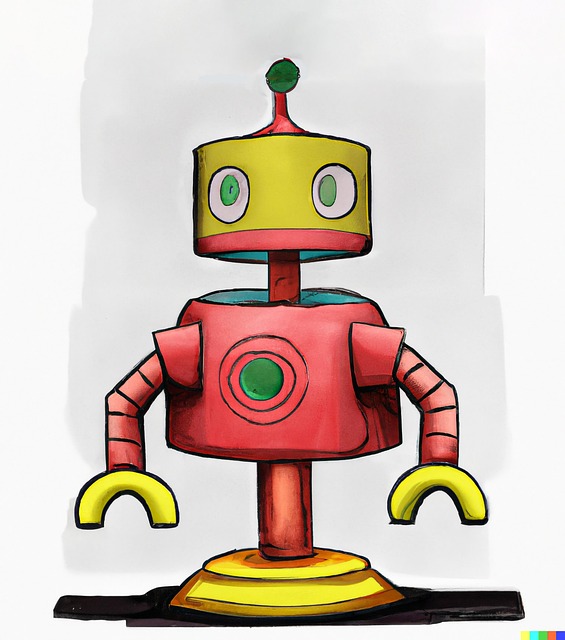# Unveiling the Future: How AI Technology is Redefining Innovation Across All Sectors and Industries
The advent of artificial intelligence (AI) has ushered in a new era of innovation, transforming the landscape of various sectors and industries. As organizations increasingly harness the power of AI, the implications for efficiency, productivity, and creativity are profound. This article delves into the multifaceted impact of AI technology, examining its influence across healthcare, finance, manufacturing, and more, while also considering the ethical implications and future prospects.
## Transforming Healthcare: AI as a Catalyst for Change
In the realm of healthcare, AI is revolutionizing patient care and medical research. Machine learning algorithms are being employed to analyze vast datasets, enabling healthcare professionals to make more informed decisions. For instance, predictive analytics can identify patients at risk of developing chronic diseases, allowing for earlier interventions and personalized treatment plans. This proactive approach not only enhances patient outcomes but also reduces healthcare costs, contributing to a more sustainable system.
Moreover, AI-driven technologies are streamlining administrative tasks, such as scheduling and billing. By automating these processes, healthcare providers can focus more on patient care rather than paperwork. Telemedicine, powered by AI, is also gaining traction, facilitating remote consultations and monitoring. This shift not only improves access to healthcare services, particularly in underserved areas, but also showcases the potential of AI to bridge gaps in healthcare delivery.
Another significant development is the integration of AI in drug discovery and development. Traditional methods of researching and testing new drugs can be time-consuming and costly. However, AI algorithms can analyze existing research, predict molecular behavior, and even simulate clinical trials, significantly expediting the process. As a result, the pharmaceutical industry is witnessing a surge in innovation, ultimately leading to faster delivery of life-saving medications to patients.
## Revolutionizing Finance: AI’s Role in Risk Management and Customer Experience
The financial sector is experiencing a paradigm shift, largely due to the incorporation of AI technologies. Financial institutions are leveraging AI for various applications, including fraud detection, risk assessment, and customer service enhancement. Advanced algorithms can analyze transaction patterns in real-time, identifying anomalies that may indicate fraudulent activity. This capability not only protects consumers but also helps financial institutions mitigate losses and enhance their reputations.
Furthermore, AI is transforming the customer experience in finance. Chatbots and virtual assistants are becoming commonplace, providing customers with instant support and personalized financial advice. These AI-driven tools can analyze individual spending habits and offer tailored recommendations, empowering consumers to make informed financial decisions. The result is a more engaging and efficient customer experience, fostering loyalty and trust in financial institutions.
Investment strategies are also being reshaped by AI. Quantitative trading, powered by machine learning, allows firms to analyze market data at an unprecedented scale, identifying trends and making trades with remarkable speed. This capability enables investors to capitalize on opportunities that may have gone unnoticed in traditional analysis. As a consequence, AI is not only enhancing financial performance but also democratizing access to investment strategies, allowing individual investors to benefit from sophisticated insights previously reserved for institutional players.
## Innovating Manufacturing: The Rise of Smart Factories
Manufacturing is another sector where AI is making significant strides, leading to the emergence of smart factories. These high-tech environments utilize AI, the Internet of Things (IoT), and robotics to optimize production processes. By implementing predictive maintenance powered by AI, manufacturers can foresee equipment failures before they occur, minimizing downtime and reducing maintenance costs. This proactive approach enhances operational efficiency, ultimately leading to increased productivity and profitability.
Additionally, AI is facilitating the customization of products at scale. With the help of machine learning algorithms, manufacturers can analyze consumer preferences and market trends to create tailored products that meet specific demands. This level of personalization not only enhances customer satisfaction but also drives brand loyalty, as consumers increasingly seek products that resonate with their individual tastes.
Supply chain management is also benefiting from AI innovations. By analyzing data from various sources, AI can optimize logistics, predict demand fluctuations, and streamline inventory management. This capability is particularly crucial in today’s fast-paced market environment, where responsiveness and agility are paramount. As a result, companies that embrace AI in their supply chain operations are better equipped to adapt to changing market conditions and consumer expectations.
## Ethical Considerations and Future Prospects
As AI technology continues to evolve, ethical considerations must be at the forefront of discussions surrounding its implementation. Concerns about data privacy, algorithmic bias, and job displacement are critical issues that need to be addressed. Organizations must prioritize transparency and accountability in their AI systems to ensure that they are used responsibly and ethically. This includes developing guidelines for data usage, implementing fairness checks in algorithms, and fostering a culture of inclusivity within AI development teams.
Looking to the future, the potential for AI to redefine innovation across all sectors is immense. As technology advances, we can expect to see even more sophisticated applications of AI, from autonomous vehicles to advanced robotics in healthcare. The convergence of AI with other emerging technologies, such as blockchain and augmented reality, will likely create new avenues for innovation, further transforming industries and enhancing human capabilities.
In conclusion, AI technology is not merely a tool; it is a catalyst for change that is redefining innovation across various sectors and industries. Its transformative impact on healthcare, finance, and manufacturing exemplifies the potential of AI to enhance efficiency, improve decision-making, and foster creativity. However, as we embrace this technological revolution, it is essential to navigate the ethical challenges it presents, ensuring that AI serves as a force for good in society. As we look ahead, the future of innovation is undoubtedly intertwined with the continued advancement of AI technology, promising a world of possibilities that were once unimaginable.











